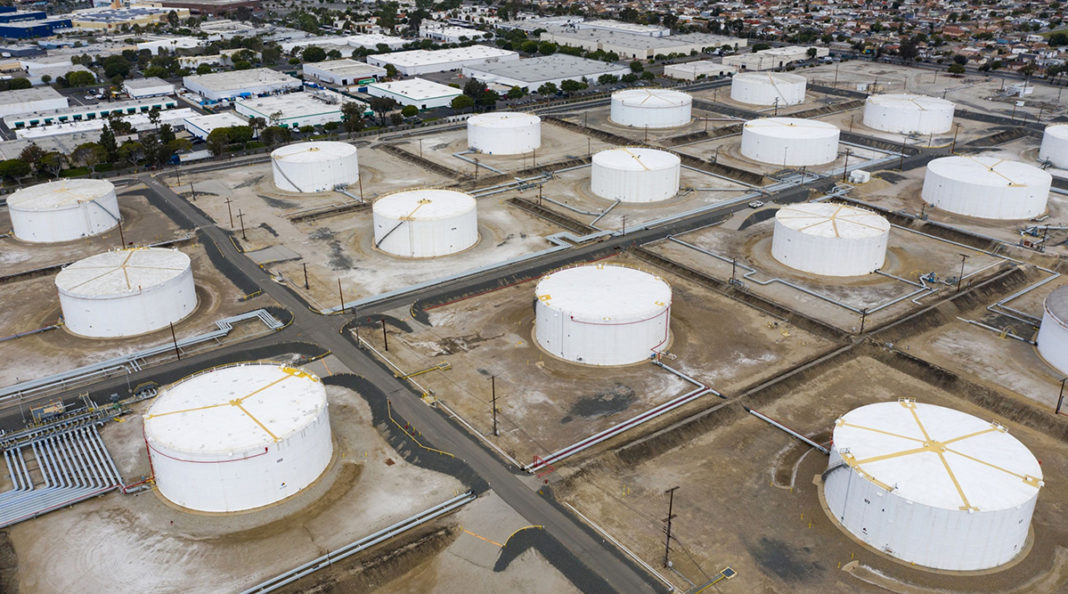According to three sources familiar with the plan, US President Joe Biden is ready to announce the largest-ever release of oil from the country’s emergency reserves. He attempts to temper petroleum prices, which are flowing into high inflation across the economy.
The White House is poised to announce the release of 180 million barrels from the Strategic Petroleum Reserve on Thursday, dwarfing past emergency releases, and is also asking assistance from other western countries to release part of their stored oil.
According to people involved with the plan, the current release, Biden’s third since November, would last many months and produce up to 1 million barrels of oil per day. The United States consumes around 20 million barrels of oil each day, accounting for nearly a fifth of world demand.
According to a person briefed on the idea, the US government will later buy back the oil to replenish the reserve at $80 per barrel to promote more drilling by American shale companies. According to a source familiar with the strategy, the government attempts to bridge a supply gap until US production rises later this year.
Oil prices plummeted on news of Biden’s planned statement, with WTI, the US benchmark, falling 4.2 percent to $103.29, and Brent, the international benchmark, falling 4.4 percent to $108.50.
According to the White House schedule, Biden will talk on Thursday at 1.30 p.m. about “his administration’s initiatives to decrease the impact of [Vladimir] Putin’s price hike on energy costs and cut gas prices at the pump for American households.”
Biden has increasingly blamed Russia’s Putin for soaring inflation since Moscow’s invasion of Ukraine, lowering his approval ratings and jeopardizing the Democratic party’s chances of maintaining control of Congress in November’s midterm elections.
In the aftermath of Moscow’s war in Ukraine, western countries have stepped up sanctions against Russia, the world’s largest petroleum exporter, including a ban by the US on oil imports from the country.
The International Energy Agency, a watchdog for western consumer countries, predicted that sanctions against Russia and shippers’ reluctance to load Russian crude might reduce the country’s supply by up to 3 million barrels per day by April, or around 3% of global output.
“Given the substantial Russian oil supply disruption risk, it would not be surprising for the administration to extend the [previous stock releases],” said Bob McNally, a former assistant to US President George W Bush, who now runs consultancy Rapidan Energy Group.
Since the invasion, oil prices have risen dramatically, with international benchmark Brent hitting 14-year highs this month. Prices have nearly doubled in the last year, with average gasoline prices up over 50% and hitting new highs in recent weeks.
The United States has also pressed Saudi Arabia and other Opec members to accelerate production increases, but the cartel has resisted. On Thursday, the oil producer group and allies said they would try to boost output by 432,000 b/d in May, sticking to a monthly timetable agreed on last year to replace quantities lost at the start of the pandemic gradually.
“Ongoing geopolitical developments, not fundamentals, are causing current volatility,” Opec stated. The SPR is a government-run emergency storage complex with four underground facilities in salt domes along the Gulf Coast of the United States. According to the federal Energy Information Administration, it currently holds 568 million barrels of crude oil.
In November, Biden announced an SPR release, and last month, the US joined other IEA members in a coordinated global release. Following supply disruptions such as Hurricane Katrina in 2005 and the Libyan civil conflict in 2011, substantial stock releases have happened in the past. The Department of Energy did not respond to a request for comment.
Interested in more news-related blogs, here’s an article about what’s going down in Russia’s invaded Ukraine.



